David Obst
Transfer Learning for Linear Regression: a Statistical Test of Gain
Feb 18, 2021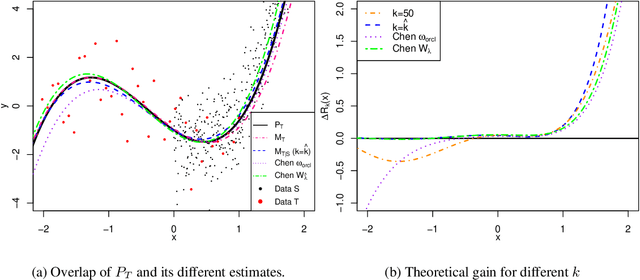
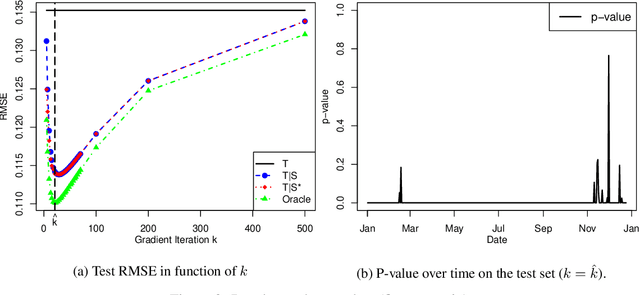
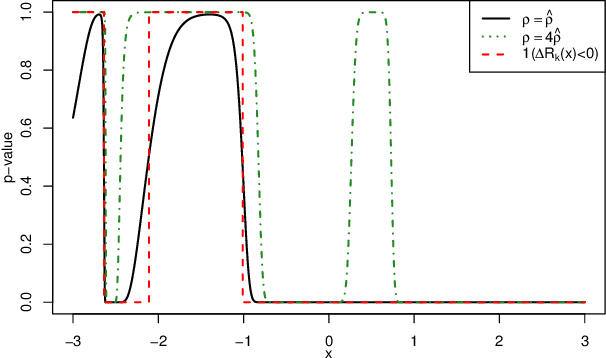
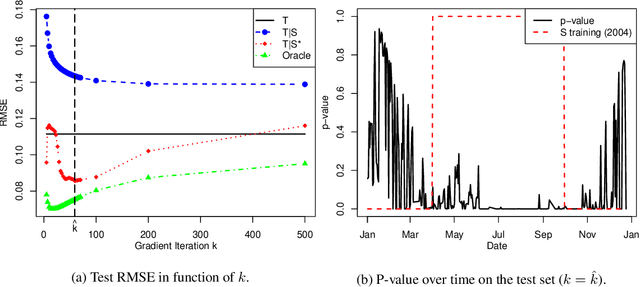
Abstract:Transfer learning, also referred as knowledge transfer, aims at reusing knowledge from a source dataset to a similar target one. While many empirical studies illustrate the benefits of transfer learning, few theoretical results are established especially for regression problems. In this paper a theoretical framework for the problem of parameter transfer for the linear model is proposed. It is shown that the quality of transfer for a new input vector $x$ depends on its representation in an eigenbasis involving the parameters of the problem. Furthermore a statistical test is constructed to predict whether a fine-tuned model has a lower prediction quadratic risk than the base target model for an unobserved sample. Efficiency of the test is illustrated on synthetic data as well as real electricity consumption data.
Adaptive Methods for Short-Term Electricity Load Forecasting During COVID-19 Lockdown in France
Sep 14, 2020
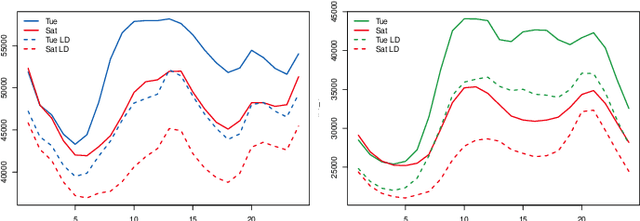
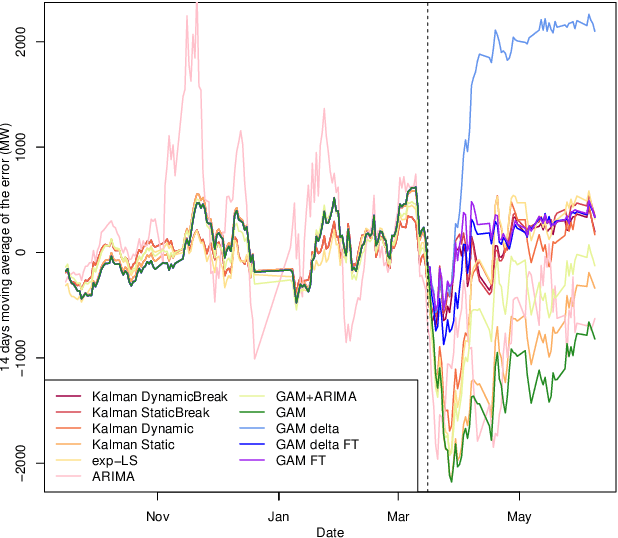
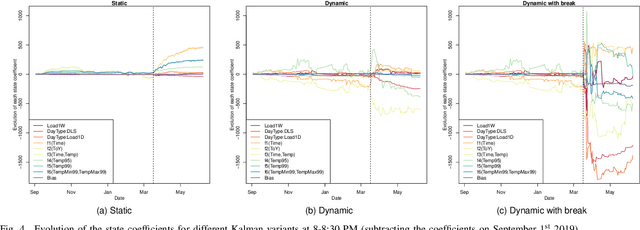
Abstract:The coronavirus disease 2019 (COVID-19) pandemic has urged many governments in the world to enforce a strict lockdown where all nonessential businesses are closed and citizens are ordered to stay at home. One of the consequences of this policy is a significant change in electricity consumption patterns. Since load forecasting models rely on calendar or meteorological information and are trained on historical data, they fail to capture the significant break caused by the lockdown and have exhibited poor performances since the beginning of the pandemic. This makes the scheduling of the electricity production challenging, and has a high cost for both electricity producers and grid operators. In this paper we introduce adaptive generalized additive models using Kalman filters and fine-tuning to adjust to new electricity consumption patterns. Additionally, knowledge from the lockdown in Italy is transferred to anticipate the change of behavior in France. The proposed methods are applied to forecast the electricity demand during the French lockdown period, where they demonstrate their ability to significantly reduce prediction errors compared to traditional models. Finally expert aggregation is used to leverage the specificities of each predictions and enhance results even further.
Textual Data for Time Series Forecasting
Oct 29, 2019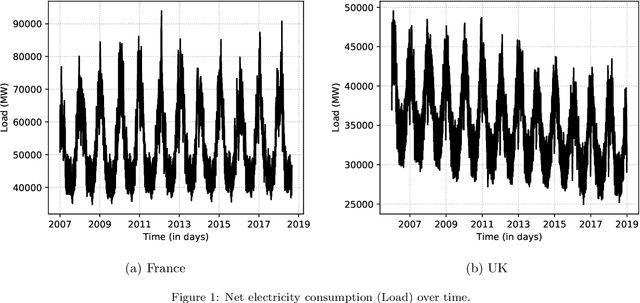
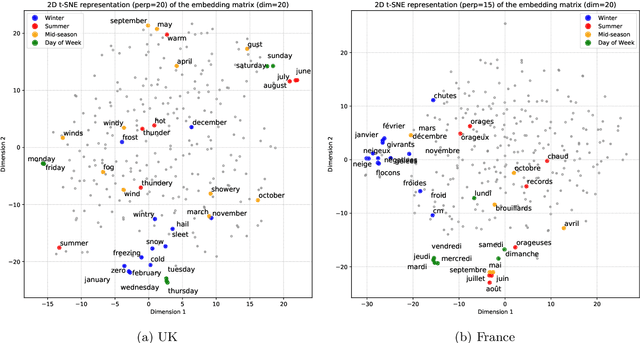
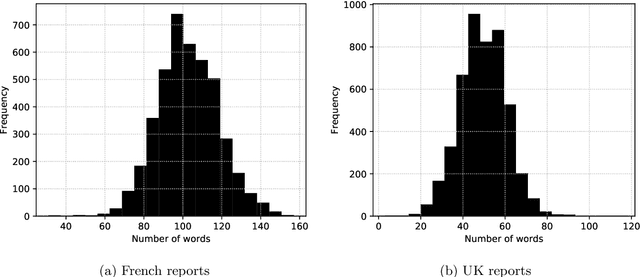

Abstract:While ubiquitous, textual sources of information such as company reports, social media posts, etc. are hardly included in prediction algorithms for time series, despite the relevant information they may contain. In this work, openly accessible daily weather reports from France and the United-Kingdom are leveraged to predict time series of national electricity consumption, average temperature and wind-speed with a single pipeline. Two methods of numerical representation of text are considered, namely traditional Term Frequency - Inverse Document Frequency (TF-IDF) as well as our own neural word embedding. Using exclusively text, we are able to predict the aforementioned time series with sufficient accuracy to be used to replace missing data. Furthermore the proposed word embeddings display geometric properties relating to the behavior of the time series and context similarity between words.
 Add to Chrome
Add to Chrome Add to Firefox
Add to Firefox Add to Edge
Add to Edge